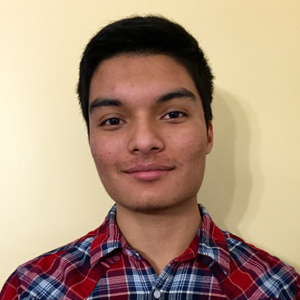Changing the next generation
Before I became interested in biology, I wasn’t a big fan of school. I basically thought of school as a place to see friends and socialize.
Like every school in my region, my school required that students take a biology course. Since science was the only subject I was ever good at, I thought it should be easy for me to get at least a C in the course.
See, the problem with me when I was starting biology was that I did not set a high standard for myself and just wanted to cruise through high school getting Cs in every course. That mindset, however, changed when I met my biology teacher.
The first day in my biology class was not what I expected. I was hoping for a regular day when we would just go over the syllabus and the classroom rules. However, once we all got settled into our desks, my biology teacher just stood in front of the class analyzing each of our faces. After a long moment of silence, he finally started class in an unusual way.
He started asking each of us: What are your goals in life? Where do you see yourself 10 years from now?
After hearing my classmates and their goals, I knew that I had a different goal than some of them. I have always wanted to become a doctor.
Then my biology teacher said something that really caught my attention. He said that many students in high school do not have high standards for themselves and do not achieve to their highest abilities.
After hearing that, I remember thinking, “There goes my C in the course,” as I was sure I was going to fail the class because this teacher was going to be hard.
Turns out, though, I was really good at biology. While some of my other friends were struggling to understand the material, I was achieving. Admittedly, my biology teacher did give a lot of work and expected us to finish it before we left the classroom, but I believe that is what helped me realize the meaning of hard work. He always told me that I was not only going to learn biology in his class, but I also was going to learn simple skills that would help me become a better student.
At the end of the year, I looked up to my biology teacher as a mentor, because all of his life lectures helped me change my mindset about school. I started working hard for my other classes and realizing the importance of an education.
Luckily, I had the same teacher again during my senior year for an advanced-placement biology class. Every one of my classmates was always amazed by his lectures. Instead of giving us speeches about being a successful person, he told us valuable lessons that would help us get through college. He knew that each of us was a hard-working student, and he always reminded us to chase our goals.
On the last day of school, he said that he wished that he could follow us to each of our colleges and be with us. In that moment, my classmates and I were sad to know that we were saying our good-byes. After becoming very close to my teacher, it was hard to part ways at graduation, but I knew I was prepared for college.
After finishing my first year in college, I am one step closer to achieving my dream of becoming a doctor. I am majoring in biology. While my first year of college was hard, because I was not used to the system, I knew that if I worked hard I could achieve my goals. This journey may have obstacles in the way, but I know that with hard work, anything is possible to achieve.
Enjoy reading ASBMB Today?
Become a member to receive the print edition four times a year and the digital edition monthly.
Learn moreGet the latest from ASBMB Today
Enter your email address, and we’ll send you a weekly email with recent articles, interviews and more.
Latest in Opinions
Opinions highlights or most popular articles

Debugging my code and teaching with ChatGPT
AI tools like ChatGPT have changed the way an assistant professor teaches and does research. But, he asserts that real growth still comes from struggle, and educators must help students use AI wisely — as scaffolds, not shortcuts.

AI in the lab: The power of smarter questions
An assistant professor discusses AI's evolution from a buzzword to a trusted research partner. It helps streamline reviews, troubleshoot code, save time and spark ideas, but its success relies on combining AI with expertise and critical thinking.
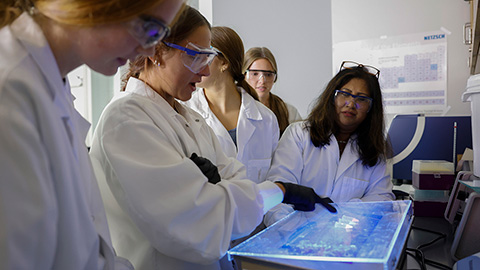
How AlphaFold transformed my classroom into a research lab
A high school science teacher reflects on how AI-integrated technologies help her students ponder realistic research questions with hands-on learning.
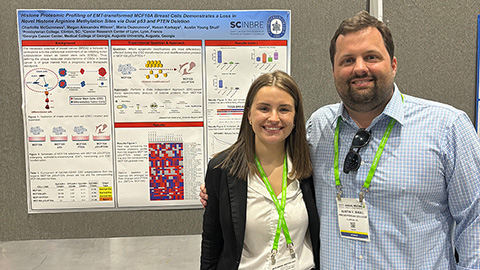
Writing with AI turns chaos into clarity
Associate professor shares how generative AI, used as a creative whiteboard, helps scientists refine ideas, structure complexity and sharpen clarity — transforming the messy process of discovery into compelling science writing.
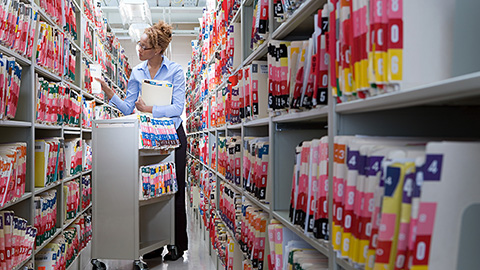
Teaching AI to listen
A computational medicine graduate student reflects on building natural language processing tools that extract meaning from messy clinical notes — transforming how we identify genetic risk while redefining what it means to listen in science.
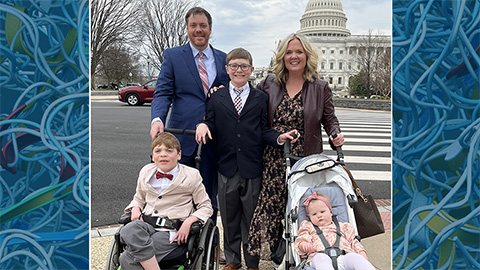
What’s in a diagnosis?
When Jessica Foglio’s son Ben was first diagnosed with cerebral palsy, the label didn’t feel right. Whole exome sequencing revealed a rare disorder called Salla disease. Now Jessica is building community and driving research for answers.

